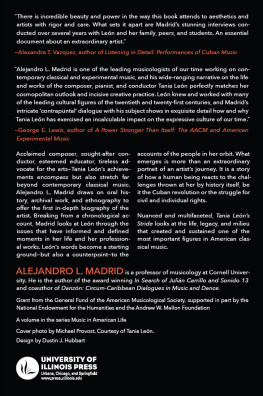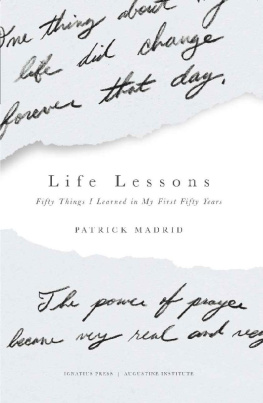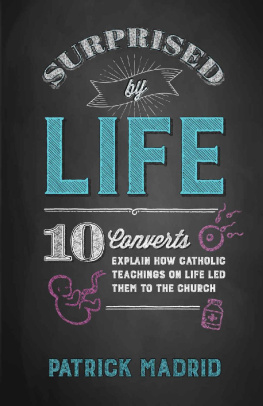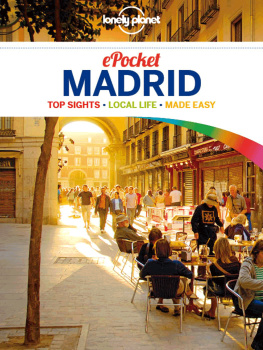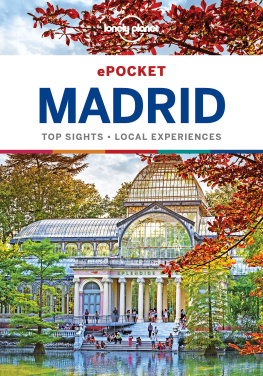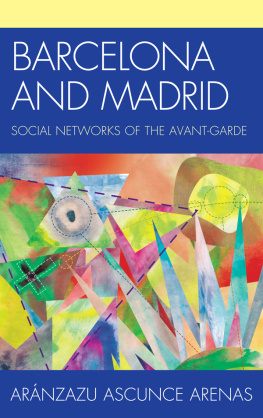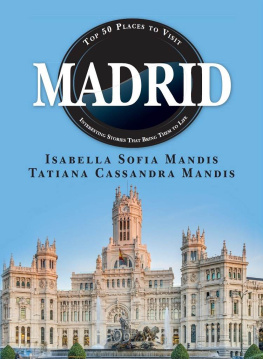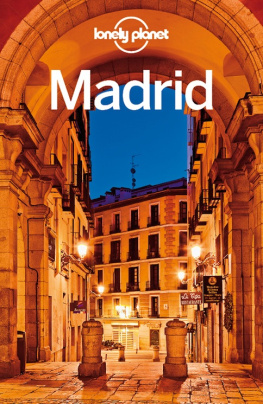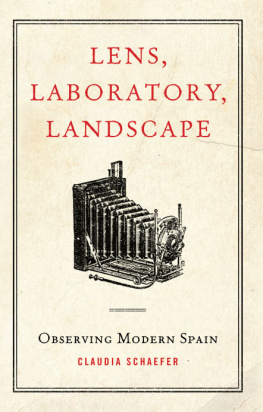Contents
Figures
List of Music Examples
Page List
Guide

tania lens stride
music in american life
A list of books in the series appears at the end of this book.
tania lens stride
a polyrhythmic life
Alejandro L. Madrid

Grant from the General Fund of the American Musicological Society, supported in part by the National Endowment for the Humanities and the Andrew W. Mellon Foundation
2021 by the Board of Trustees of the University of Illinois
All rights reserved
Library of Congress Cataloging-in-Publication Data
Names: Madrid, Alejandro L., author.
Title: Tania Lens Stride: a polyrhythmic life / Alejandro L. Madrid.
Description: Urbana: University of Illinois Press, 2021. | Series: Music in American life | Includes bibliographical references and index.
Identifiers: LCCN 2021028011 (print) | LCCN 2021028012 (ebook) | ISBN 9780252043949 (hardcover) | ISBN 9780252086014 (paperback) | ISBN 9780252052873 (ebook)
Subjects: LCSH: Len, Tania. | ComposersUnited StatesBiography.
Classification: LCC ML410.L514 M33 2021 (print) | LCC ML410.L514 (ebook) | DDC 780.92 [B]dc23
LC record available at https://lccn.loc.gov/2021028011
LC ebook record available at https://lccn.loc.gov/2021028012
Dlya moikh russkikh zhenshchin, Marina Alejandrovna i Ekaterina Petrovna
Contents
List of Figures
List of Music Examples
Acknowledgments
This project reflects the interest and support of many individuals. Foremost, I wish to express my deep gratitude to Tania Len for entrusting me with writing about her, her music, and her life. Without her commitment, patience, and generosity at every step of the road this project would simply not have been possible. I would also like to thank Brandon Fradd and The Newburgh Institute for the Arts and Ideas for commissioning the book and providing generous funding to conduct multisited archival and oral research, write the manuscript, and see it through publication. I am also eternally grateful to all the relatives, colleagues, friends, and students of Len who shared their experiences and anecdotes with me. The list is too long to include here but their names are included at the end of the books bibliography. I am especially thankful to Sergio Cote-Barco for accepting my invitation to be a composer in residence in . Sergios refined ear and savvy listening strategies were fundamental in helping me develop a novel and rich contrapuntal way to analyze Lens music.
I have been invited to share the ideas behind this book at several conferences and study groups. I want to thank their members and constituencies for patiently listening to my concepts as they were taking shape and for providing much-needed feedback. Certainly, these visits presented plenty of opportunities for debate and intellectual exchange. I first talked about this project at the 83rd Annual Meeting of the American Musicological Society in Rochester, New York. There, I benefitted enormously from the feedback provided by the session participants, Brigid Cohen, Laura Jordn, and Susan Thomas; the session respondent, Andrea Bohlman; the session moderator, Eduardo Herrera; and the many engaged audience members who provided feedback and suggestions, especially Ana Alonso-Minutti, Eric Johns, and Marysol Quevedo. I am particularly thankful to Daniela Fugellie for inviting me to share my work with her colleagues and graduate students at Universidad Alberto Hurtados Instituto de Msica in Santiago de Chile, where I also owe a debt of gratitude to Juan Pablo Gonzlez for his enthusiastic welcoming. Likewise, my participation at the University of North Carolinas Symposia in Music and Culture was a unique moment to discuss my ideas with deeply respected colleagues, especially Annegret Fauser, David Garcia, and Mark Katz, and their graduate students. I am very grateful for this opportunity. I would also like to thank Emily Abrams Ansari and Catherine Nolan for welcoming me to the Graduate Colloquium Lecture Series at Western University to share my project. Finally, I am thankful to Matt Mendez and the musicology graduate students at Yale Universitys Department of Music, who invited me to speak about this research project at their Guest Lecture Series.
A number of archives and libraries and their staff facilitated my research and deserve special thanks here. They include Lenora Schneller and the staff at the Sidney Cox Library of Music and Dance and Bonna Boettcher and the staff at the John M. Olin Library, both at Cornell University; Anne Rhodes, Research Archivist for the Oral History of American Music at Yale University; Liza Vick, Head of the Otto E. Albrecht Music Library and Eugene Ormandy Music and Media Center of the University of Pennsylvania Libraries; April L. James, Reader Services Librarian and Eri Mizukane, Administrative and Reprographic Services Coordinator at the Kislak Center for Special Collections of the University of Pennsylvania Libraries; and the staff at the Music and Dance Divisions of the Dorothy and Lewis B. Cullman Center at the New York Public Library for the Performing Arts. In Cuba, I am indebted to Mara Elena Vinueza and the staff at Casa de las Amricas Departamento de Msica, especially Carmen Souto Anido and Layda Ferrando, who always go out of their way to make my visits to their country productive and fond experiences.
My work could not have been carried out without the help of my research assistants in Cuba and the United States. In Havana, I could not have asked for better research assistants than Liliana Gonzlez Moreno and Gabriela Rojas Sierra, who impeccably conducted research on my behalf when I was unable to be there, organized my research agenda before I traveled to the island to interview relatives and friends of Len, and helped me secure permissions after my visit. In Ithaca, Martha Mateus, Frederick Cruz Nowell, and Carlos Ramrez were in charge of the often tedious job of transcribing countless hours of interview audio files. Thanks to Jordan Musser for his indexing and proofreading job.
Likewise, many individual friends and colleagues contributed to my research. I am forever grateful to all of them. They include Arved Ashby, Dan Blim, David Borden, Carole Fernndez, Dana Gooley, Rob Haskins, Sara Haefeli, Ailer Prez Gmez, Carmen Cecilia Piero, Jess Ramos-Kittrell, Lena Rodrguez Duchesne, Nairin Rodrguez Duverger, and Evis Sammoutis. For many reasons I had a hard time deciding on the title of this book, and I owe a big debt of gratitude to all the friends and colleagues who generously shared with me their ideas and feedback about the different versions of the title I entertained; they include Emily Abrams Ansari, Ana Alonso-Minutti, Catherine Appert, Marcos Balter, Seth Brodsky, Charity Anne Caldwell, Guadalupe Caro Cocotle, Sergio de Regules, Sam Dwinell, Kai Fikentscher, Brandon Fradd, Kyra Gaunt, Dana Gooley, Justin Grant, Alisha Jones, Kendra Leonard, Tamara Levitz, Ana Mara Ochoa-Gautier, Carmen Cecilia Piero, Jess Ramos-Kittrell, Nancy Rao, Will Robin, Diana Marcela Rodrguez, Brenda Romero, Suzanne Ryan Melamed, Dan Sharp, Susan Thomas, and Sean Williams. At Peermusic, I would like to thank especially Todd Vunderink, Karen Hayden, and Karen Heymann for facilitating all the scores of Tania Lens music I requested and for granting permission to publish the music examples in . At the Dance Theatre of Harlem, I am also deeply thankful to Anna Glass and Theara Ward for sharing historical pictures from the companys archive. I am grateful to Ed Yim and Stephanie Polonioformer President and current Development Associate of the American Composers Orchestra, respectivelyand to Jesse Rosen and Julia Gonzalez current President/CEO and Executive Assistant to the President/CEO of the League of American Orchestras, respectivelyfor loaning me pictures of the Sonidos de las Amricas festivals from their institutional as well as personal archives, and for generously giving me permission to use them in the book. I am also indebted especially to friends and colleagues who have provided kind and detailed comments and feedback on specific chapters of the book at various stages; they include Maria Cristina Garcia, Kyra Gaunt, Marc Gidal, William Robin, James Spinazzola, and Mara de los Angeles Torres. I also want to thank Richard Carlin for his editorial work with the manuscript in its final stage.

